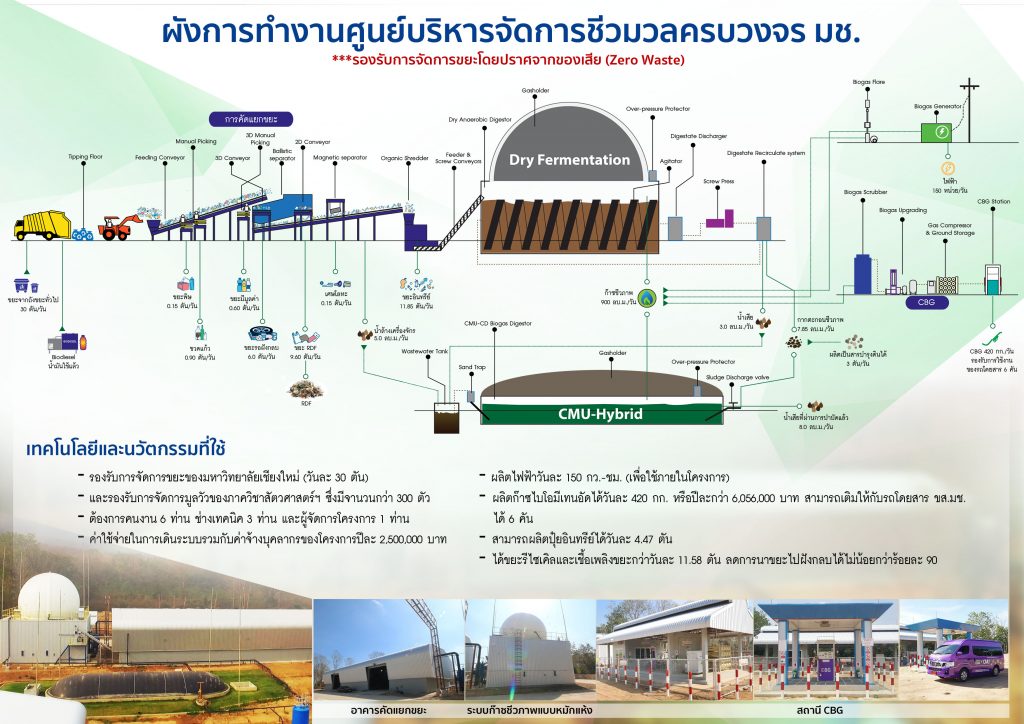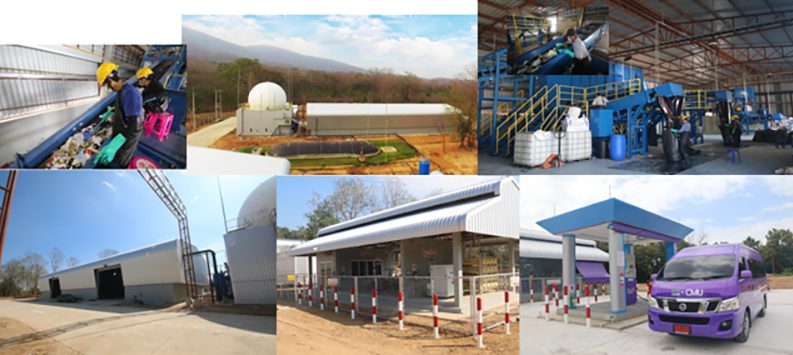Chiang Mai University has set a proactive environmental and energy innovation strategy. It focuses on sustainable waste management to produce alternative energy as a community model.

The waste management process at Chiang Mai University starts with faculty and students properly segregating waste at its source. Within the university, waste is categorized into 6 types:
• General Waste
• Recyclable Waste
• Organic Waste
• Biological Waste
• Hazardous Waste
• Construction and Foam Waste
Infected waste is sent to the Medical Faculty for incineration.
Hazardous waste is sent to authorized companies or agencies for disposal.
Recyclable waste is either processed through a waste bank program or sold directly by the faculties or departments.
Organic waste is managed as a complete cycle by the Integrated Organic Waste Management Center, which collects it from the source.
General waste is transported by municipal vehicles to the center for conversion into alternative energy sources.

การกรอกข้อมูลสำหรับการร้องเรียนการทุจริตและพฤติกรรมมิชอบนั้นจะถูกเก็บเป็นความลับ ข้อมูลส่วนตัวของท่าน ชื่อ-นามสกุล อีเมล์ และเบอร์โทรศัพท์ เป็นช่องทางในการติดต่อกลับและรายงานการดำเนินการให้ท่านรับทราบ
* หมายเหตุ : การร้องเรียนการทุจริตและพฤติกรรมมิชอบเมื่อกรอกข้อมูลแล้ว จะรายงานส่งไปยังผู้บริหารสูงสุดของหน่วยงาน
การกรอกข้อมูลสำหรับการร้องเรียนการทุจริตและพฤติกรรมมิชอบนั้นจะถูกเก็บเป็นความลับ ข้อมูลส่วนตัวของท่าน ชื่อ-นามสกุล อีเมล์ และเบอร์โทรศัพท์ เป็นช่องทางในการติดต่อกลับและรายงานการดำเนินการให้ท่านรับทราบ
* หมายเหตุ : การร้องเรียนการทุจริตและพฤติกรรมมิชอบเมื่อกรอกข้อมูลแล้ว จะรายงานส่งไปยังผู้บริหารสูงสุดของหน่วยงาน